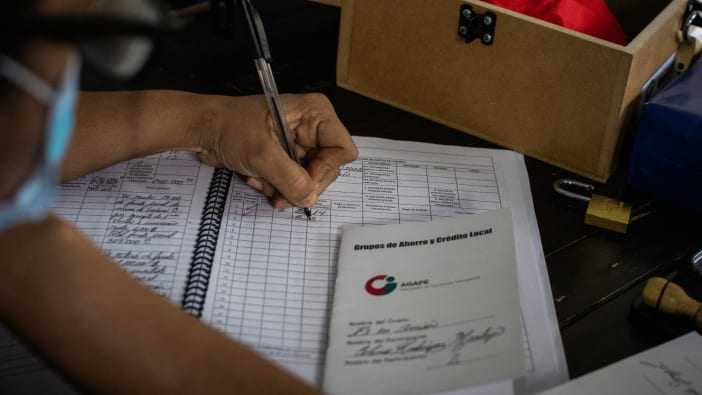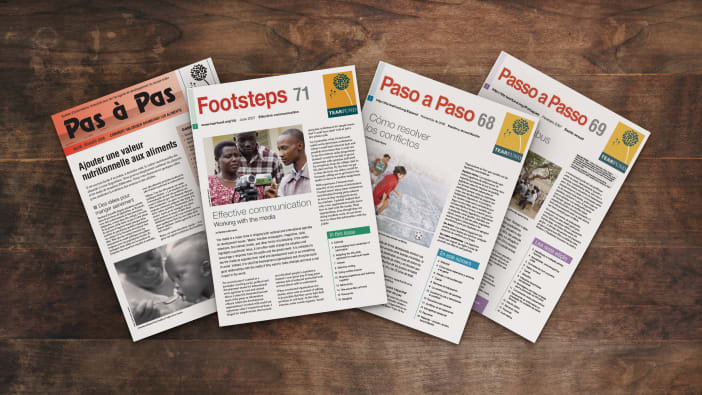by Chris Sealy.
The key to all successful business is getting the basics right. New groups can compete with experienced producers if they are able to offer better quality or better value for money. But often the problem is that groups spend their time trying to copy someone else’s success, rather than producing something different or original.
The customer is king
Business is about customers, not about products or services. Every successful business is customer-focused. Groups must find out what their customers want. In economies in transition such as Eastern Europe and the newly independent states of the former Soviet Union, much of the thinking about business is left over from the past. People concentrate on producing goods, assuming that the customers will be there.
Planning is essential
All good business books emphasise the need for a business plan. Many people resist the discipline of planning and some fear that such an examination will show their ideas to be wrong – but people must know:
- what product or service they will sell
- who they will sell it to and why customers might buy from them and not from other producers
- how much goods will cost to produce and what price they can be sold for. The difference between the two is the profit and this must be enough to live on if this is to be a full time job.
Profit = sale price less cost of production
Costs
Costs must be measured and monitored accurately. Every part of the business must be costed, including the use of the friend’s car to take products to market. Waste materials left over after cutting or spoiled by mistakes, must be included in the costs. The extra cost of buying a small quantity of material to finish an urgent order can seriously reduce profit margins.
Many small groups produce items which have a fixed market price. For instance, a dress maker must charge the same price as all the other tailors in the area. So profits can only be increased by controlling and reducing costs if possible or by improving quality so that prices can be increased. This is one area where people can use micro-credit schemes effectively. Credit may allow raw materials to be bought in larger quantities at discount prices, allowing profits to increase. Controlling wastage is another way of increasing profits.
The costs of licences and permissions for trading, both formal and informal, can be important factors for small businesses. This is a tricky ethical area and a very common source of dilemma. Central governments often nominally encourage small businesses, but local officials often use their authority to extract fees and favours.
After measuring costs accurately, the small producer can look at the market price and decide if it is worthwhile beginning the business. Most people are over-optimistic about the quantities they can produce or sell in any period. The hardest decision is to accept that the business will never make a profit.
Separate pockets
Failure to keep business money separate from personal money causes many potentially successful businesses to fail. People setting up in business suddenly find themselves with money in their pockets for the first time. Money from a recent sale or funds to buy raw materials, can make them feel rich. They look at the money in their hands and decide their personal needs are more pressing. Money owed to a supplier or needed to buy raw materials is instead used to buy food for the family. The simple solution is to use a separate pocket for business money. Make a decision about what you can afford to take from the business as a salary and take only that.
Overseas markets
A common danger I have often seen, is for groups to concentrate on exporting goods because they have begun with the encouragement of a missionary or development worker with contacts in an overseas market. Sales may depend on these personal networks. However, when this person disappears so may the sales. Never ignore the local market.
Moths and rust
The need to build up funds to replace worn out equipment appears straightforward but can be easily neglected when other needs are more pressing. When the equipment fails the business may fail with it. In the CIS and Eastern Europe people were used to making requests for replacements rather than paying for it themselves.
Use a loan to invest
Loans, if available, can be very helpful. For example, a loan might be used to buy a sewing machine which is used well so the loan can be repaid, after which the machine is the tailor’s property with many future years of profit from the investment. Some farmers I recently met in Uzbekistan had a different idea. They wanted a loan to buy seed potatoes. The harvest would be sold, the loan repaid and the rest of the money used for the family. In this way they would need to borrow again for the following year. However this project could become a business if they kept enough money from the harvest to buy next year’s seed.
Chris Sealy is a consultant advising on vocational training and small business generation, including micro-credit. His address is: 11 Pembroke Road, Melksham, Wiltshire, SN12 7NA, UK.
E-mail: [email protected]









